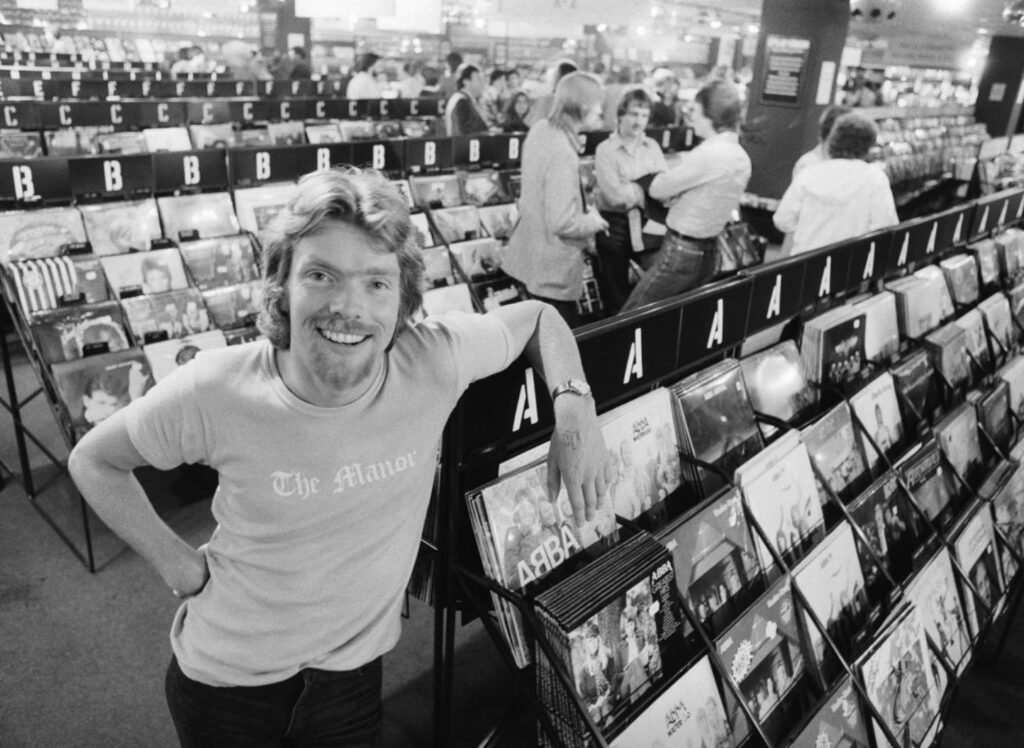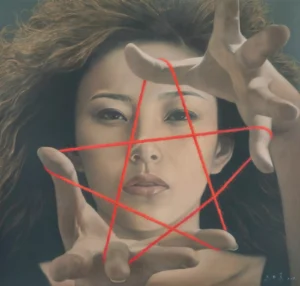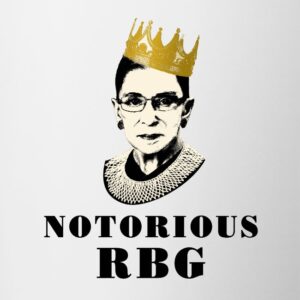Sixteen years after its ghostly disappearance from the high street, the Virgin Megastore may soon emerge once more—not as a corporate relic, but as a cultural resurrection. A symbol of community, identity, and youth expression in the pre-digital era, the Megastore wasn’t just a place to buy music; it was where people felt music. Now, as Virgin Group teases the possibility of reopening a central London flagship, the street is listening.
A TEMPLE FOR THE PEOPLE
When Richard Branson launched the first Virgin record shop on London’s Oxford Street in the 1970s, it wasn’t about selling sound; it was about creating sanctuary. Cheap beanbags, imported krautrock, and politically radical zines made the store feel like an anarchist salon rather than a conventional retail outlet.
By the 1990s, the Virgin Megastore had evolved into something even more dynamic: it became the public square of pop culture. With its glowing red signage, fluorescent-lit labyrinths of CDs, tapes, posters, and blacklight merchandise, each location became a destination for teenagers, DJs, crate diggers, fashion kids, and scene-makers.
But it wasn’t just the inventory—it was the vibe. The Virgin Megastore housed communal listening posts where kids with no cash could lose themselves in sound. It offered midnight album launches that turned queuing into street theatre. In-store performances—especially in London, Manchester, and Glasgow—blurred the line between artist and audience. For many, it was the first time they heard a punk record, or asked a stranger what they were spinning. It was physical culture, tactile experience, and social texture.
And then, just as suddenly, it was gone.
CULTURAL COLLAPSE OR CORPORATE EVOLUTION?
To understand the significance of Virgin’s potential return, we must look at what extinguished it.
The mid-2000s were apocalyptic for physical media. Napster had already turned CDs into artifacts. iTunes monetized the individual song. Supermarkets crushed margins with £5 chart-toppers. Virgin Group, sensing the shift, sold off its UK Megastores in 2007 to Zavvi—a Hail Mary that couldn’t compete with the digital wave. By 2009, Zavvi collapsed into administration. Store lights went out. Neon logos were scraped off like fossilized hieroglyphs.
The closure wasn’t just commercial—it was spiritual. The loss of the Megastore marked a broader erasure of public, unsupervised youth spaces in cities. Virgin wasn’t just another casualty of streaming; it was an analog cathedral razed during a digital crusade.
WHY NOW? THE VINYL RESURGENCE AND A DESIRE FOR SPACE
The idea of Virgin Megastore’s return doesn’t come from nowhere. It arrives during a cultural shift that challenges the very assumptions that destroyed it.
In 2024, vinyl outsold CDs for the first time in 35 years. Independent record stores are thriving in cities like London, New York, and Berlin—not because of their inventory, but because of their identity. People are searching for experiences that algorithmic platforms like Spotify can’t deliver: serendipity, touch, human guidance.
This is part of a larger phenomenon. As social media becomes more parasitic, young people are craving offline culture. Bookshops like Daunt’s or The Strand have become cool again. DIY spaces like Cafe OTO, Dalston Superstore, and Spiritland don’t just book acts—they build atmosphere. Even fashion retail, long suffering under the weight of e-commerce, is finding rebirth in community-driven concept stores like Dover Street Market or London’s Goodhood.
Josh Bayliss, Virgin Group’s CEO, isn’t blind to this shift. His comment about reintroducing “human connection” is a coded nod to Gen Z’s analog longing. Listening rooms, curated vinyl walls, and live sessions aren’t just nostalgic—they’re urgently now.
THE STREET AS STAGE, THE SHOP AS SCENE
For a street culture magazine, the real story isn’t whether Virgin can sell enough limited edition reissues to justify rent in Soho or Camden. The story is how the space can reclaim its past function as a cultural stage.
Street culture has always relied on third spaces: skateparks, music venues, barber shops, art supply stores, clubs, sneaker boutiques. They are where scenes gestate, where kids pick up slang, swap flyers, or freestyle on a corner. The Virgin Megastore used to be one of those spaces—and if done right, it could be again.
Imagine a Friday night in the new Megastore: a grime cypher in the basement. Upstairs, a panel talk between underground DJs and radio hosts. A listening party for a local drill artist. Merch drops in collaboration with Palace, Corteiz, or Aries. Suddenly, Virgin isn’t just a retail brand—it’s a facilitator. A node in the city’s creative nervous system.
That doesn’t require 10,000 square feet. It requires vision, curation, and commitment to community over commerce.
THE PSYCHOLOGY OF RETAIL RITUAL
Beyond vinyl, beyond even music, there’s another thread that explains the excitement around Virgin’s possible comeback: the ritual of retail itself.
Walking into a record shop isn’t about purchasing—it’s about possibility. It’s about the ritual of entering a space that rearranges your mood, the rhythm of running your fingers through racks, the thrill of hearing something new through a borrowed pair of headphones. In the Virgin Megastore, people weren’t just buying—they were becoming.
Retail, in its truest form, is identity architecture. And in an age where identity is increasingly flattened into avatars and bios, a space where you can actually try on different selves—through music, fashion, or vibe—is radical.
Virgin Megastore, done right, could become one of those spaces again.
BRANSON, LEGACY, AND THE IDEA OF RECLAMATION
What does Richard Branson have to do with any of this? Plenty.
For all his flamboyance, Branson understood the value of narrative. Virgin was never just a product; it was a story. A defiant, cheeky underdog spirit pulsing through records, airlines, condoms, and space travel. Virgin Megastore wasn’t about profit margins—it was about myth-making.
In 2025, the myth needs refreshing. Not rebranding. Not nostalgia. Reclamation.
A Virgin Megastore revival would not be a business expansion—it would be a cultural gesture. A signal that the city still has room for shared experience, for cultural collision, for people.
In a London increasingly besieged by privatized public space, soaring rents, and creative exodus, a comeback like this is about more than music. It’s about reclaiming space.
THE STREET WANTS ITS SOUND BACK
The question isn’t can Virgin Megastore return. It’s whether it can return in the spirit that made it essential. Not as a shopping center—but as a street-level sanctuary. Not as a nostalgia trip—but as a next chapter.
Music culture needs more than playlists and algorithms. It needs rooms. It needs raised voices. It needs community. If Virgin wants to bring back the Megastore, it has to commit—not to the past, but to the people shaping the future.
No comments yet.









